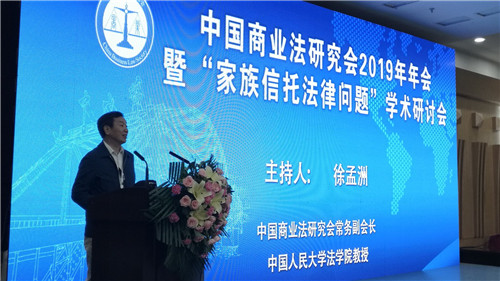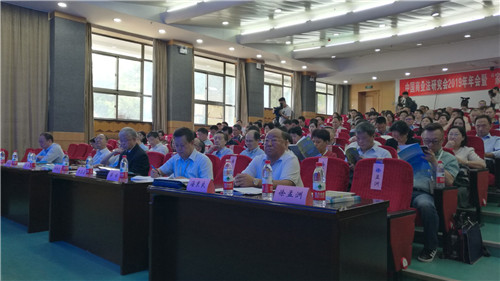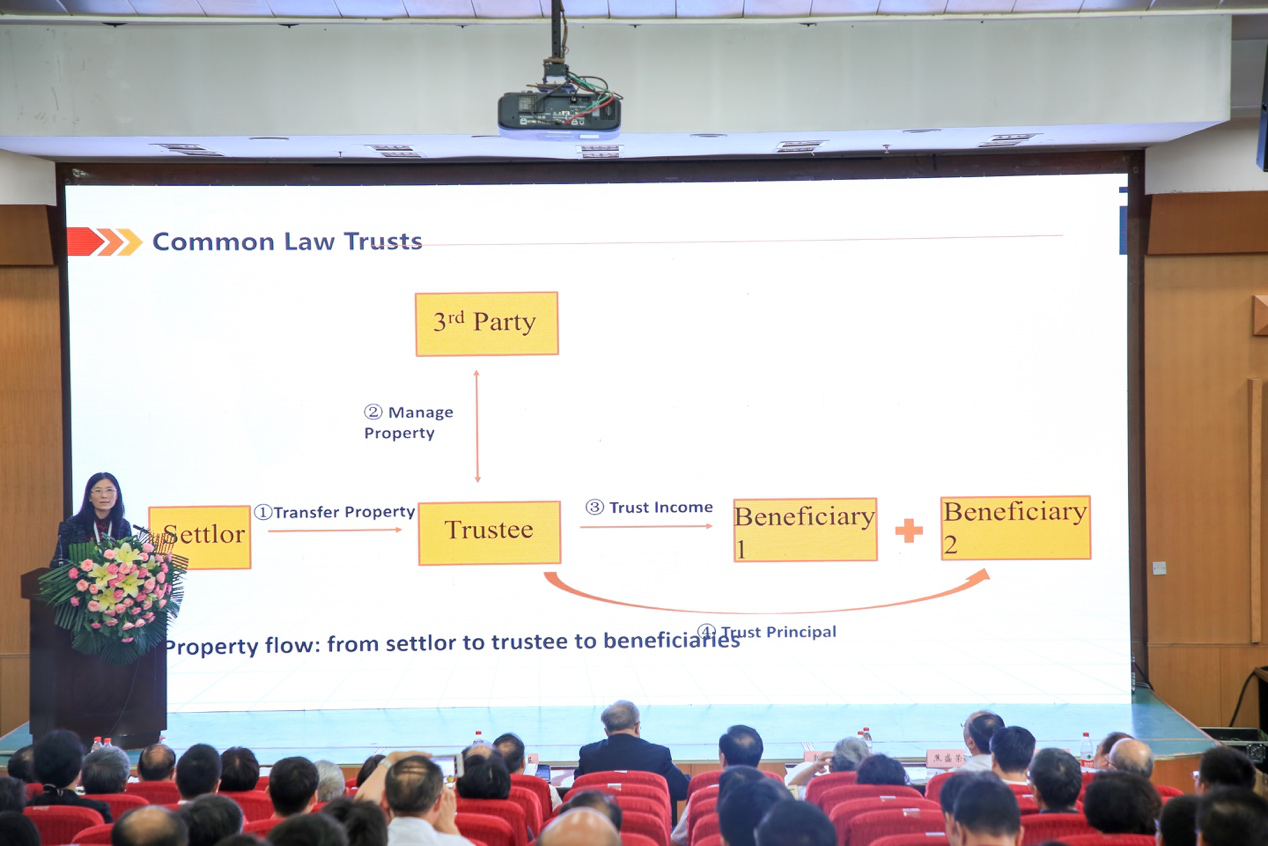CBLS (China Business Law Society) Annual Conference 2019 was held in Lanzhou, Gansu Province on Aug. 18th, 2019, focusing on legal issues relating to the development of family trusts in China. The seminar had attracted over 180 participants, including legal scholars from leading universities and research institutes at home and abroad, as well as domestic lawyers and entrepreneurs.
The opening ceremony was presided over by Mr. Mengzhou XU, Vice President of CBLS and Professor of Law from Renmin University of China. Mr Yuji LI, President of Gansu University of Political Science and Law (GUPSL), Justice Feng GUO, President of China Institute of Securities Law, and Mr. Peizhong GAN, President of CBLS and Professor of Law from Peking University, each made an opening remark.

After the opening ceremony, Professor Xiaoxia LIU, Dean of Civil, Commercial and Economic Law School of GUPSL, announced the keynote speakers. The six keynote speakers, including Professor Lingyun GAO from Fudan Law School, put forward valuable views and opinions on the development of family trust system in China.
Among others, Mr. Gaihuan CAI, Chief Economist of China Trustee Association, brought practical views to the seminar based on his experiences in the participation of legislation drafting and involvement in the trust industry. Professor Yong WANG from the Civil, Commercial, and Economic Law School of China University of Political Science and Law (CUPL), pointed out that there are already competitions in China between trust and other legal instruments, and competitions between Chinese law and the laws of off-shore jurisdictions over family trust business. Professor Jianbo LOU from Peking University Law School suggested that trust companies should conduct more research on how to manage non-cash assets involved in family trusts. Mr. Jiping LEI, Senior Partner of King & Wood Mallesons, shared his practical experiences from the perspective of law firms acting as trust supervisors. Professor Jinping JIN from Peking University Law School, made comments on the development of charitable trusts in China. Then, after Professor Lingyun GAO from Fudan Law School gave the talk, Mr. Bingliang HAI, Chairman of Gansu Yangguang Carbon Group made the final speech. As a successful private entrepreneur himself, Mr. HAI talked about the demands for family wealth succession, and called on everyone to attach importance to the study on family trusts law.

Professor GAO’s speech offered young scholars and postgraduate students with “A Research Agenda for Future Trust Law” based on the challenges brought by family wealth management to Chinese trust law system. Professor Gao analyzed the differences between family trusts and commercial trusts, pointing out that the purpose of family trusts is to meet the needs of the creator and owner of the family wealth, and to ensure intergenerational wealth transmission within the family. In order to make family trusts acceptable in China, the current Chinese trust system must be reformed by requiring transfer of trust assets, distinction between trust principal and trust income, and recognition of successive beneficiaries. Professor Gao also pointed out the fact that in most cases disputes would not arise until the settlor dies, if the legal system is not perfect, those so-called already-established “family trusts” must pass the judicial examination in order to be valid and effective. Finally, Professor Gao proposed that wills should be fully utilized in family wealth management, and that supervision over trustees should be strengthened.

After the keynote speeches, the participants had conducted in-depth discussions and explorations over the following seven topics in two sub-forums: “family trusts and trust law,” “family trusts and charity law,” “the legal relations in family trusts,” “supervision over family trusts,” “special issues on family trusts,” “Chinese practice of family trusts,” and “comparative study of family trust law.” They all agreed that family trust system was an important system, and its development should be promoted to realize the wealth transmission goals of private entrepreneurs and individuals.
Professor Mengzhou XU from Renmin University of China made a remark at the closing session. He appreciated the participants’ profound and comprehensive viewpoints, and expected the perfection and maturity of the Chinese family trust law system. The closing session was presided over by Ms. Jihua HU, Vice President of CBLS and former inspecting official of the Civil Law Office of the Legislative Affairs Commission under the National People’s Congress.

With the high-speed development of Chinese economy since the implementation of the reform and opening-up policy, private entrepreneurs have built huge wealth for the society as well as for their families, and the majority of people also have gradually accumulated certain wealth. Therefore, there is a bottom-up need for wealth management. In this context, trust as an important tool for family wealth management, is getting noticed. In order for more entrepreneurs and individuals to manage their wealth within China and through Chinese law, more scholars and practitioners are needed to study and discuss about the legal dilemma and challenges arising from family trusts, and to offer legislative suggestions and alternatives for the system design.






